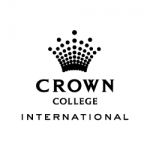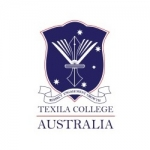Study in Poland for Indian Students

Poland has emerged as a promising study destination for Indian students, offering high-quality education at affordable costs, a vibrant student life, and increasing career opportunities. Known for its rich cultural heritage, beautiful landscapes, and welcoming atmosphere, Poland attracts international students seeking both bachelor’s and master’s programs in a variety of fields.
Why Study in Poland?
- Affordable Education and Living Costs Tuition fees in Poland are lower compared to many European countries, offering affordable options for quality education in fields like engineering, business, and medicine. Cost of living in Poland is generally affordable, making it easier for students to manage their expenses.
- Globally Recognized Degrees: Polish universities, such as the University of Warsaw, Jagiellonian University, and Warsaw University of Technology, are internationally recognized and highly ranked. Many programs are designed to meet European Union standards, making Polish degrees widely accepted around the world.
- Wide Range of Programs in English: Polish universities offer a variety of programs taught in English, especially at the postgraduate level. This includes popular fields like computer science, engineering, management, and medicine.
- Rich Cultural and Historical Experience: Poland is known for its historical sites, vibrant cities, and diverse culture. Students in Poland have opportunities to explore the country’s history and experience its lively student life.
- Work and Post-Graduation Opportunities: Poland allows students to work part-time during their studies and offers post-graduation work permits, making it possible to gain work experience and potentially settle in the EU.
Eligibility Requirements for Indian Students
1. Academic Qualifications:
- Undergraduate Programs: Completion of higher secondary education (12th grade) from a recognized Indian board. Students applying for certain technical programs may need strong grades in relevant subjects like math or science.
- Postgraduate Programs: A bachelor’s degree from a recognized Indian university, typically with a minimum score of 55–60%.
- Ph.D. Programs: A master’s degree in a relevant field, along with research experience. Some universities may require a research proposal as part of the application.
2. Language Proficiency:
English-taught Programs:
- IELTS (International English Language Testing System): Minimum score of 6.0–6.5
- TOEFL (Test of English as a Foreign Language): Minimum score of 70–90
- PTE (Pearson Test of English): Minimum score of 50–58.
Polish-taught Programs: For programs taught in Polish, students must demonstrate proficiency in the Polish language, often through language courses provided by universities.
3. Visa Requirements:
Indian students need a National Visa (Dtype) to study in Poland.
- Proof of Financial Support: Students need to demonstrate that they have sufficient funds to cover their living expenses, usually around €6,000 per year (approx. INR 5.3 lakh).
- Health Insurance: Students are required to have health insurance. Many students opt for either private international health insurance or insurance through the Polish National Health Fund.
Application Process
1. Choose Your Program and University:
Research Polish universities and programs based on your career goals. Popular fields of study in Poland include engineering, information technology, business, and medicine.
2. Prepare Required Documents:
Commonly required documents include:
- Academic transcripts and certificates
- Proof of language proficiency (IELTS/TOEFL/PTE or Polish language certification)
- Statement of Purpose (SOP)
- Letters of Recommendation (LORs)
- Copy of passport
- Financial documents for visa purposes
- Curriculum Vitae (CV)
- Portfolio (if applying to creative fields like design or architecture)
3. Submit Your Application:
Applications can usually be submitted online through the university’s website. Make sure to check application deadlines, as they vary by university and program.
4. Await Admission Offers:
Once applications are submitted, universities typically take a few weeks to process. Some programs may require an interview or entrance examination, especially for competitive courses.
5. Accept the Offer and Pay Tuition Fees:
Once accepted, follow the instructions to formally accept the offer and pay any necessary fees or deposits to secure your place.
6. Apply for a Student Visa:
After confirming admission, apply for a National Visa (D-type) at the Polish consulate or embassy in India. Submit necessary documents, including proof of admission and financial means.
7. Arrange Accommodation and Travel:
Once your visa is approved, arrange accommodation (university dorms or private rentals) and book travel to Poland.
Cost of Studying and Living in Poland

1. Tuition Fees:
- Public Universities: €2,000–€4,000 per year (approx. INR 1.7–3.5 lakh), depending on the program and university.
- Private Universities: €4,000–€8,000 per year (approx. INR 3.5–7 lakh). Specialized courses such as MBA or medical degrees may have higher tuition fees.
2. Living Expenses:
The average monthly living cost in Poland ranges from €400–€600 (approx. INR 35,000–53,000), depending on the city:
- Accommodation: €150–€300 per month for shared or university housing
- Food: €100–€150 per month
- Transportation: €10–€20 per month for a student pass


3. Scholarships:
- Government Scholarships: Scholarships are available through programs like the Polish Government Scholarship and Erasmus+.
- University-specific Scholarships: Many universities offer scholarships based on academic merit, which can help cover tuition fees.
- External Scholarships: Scholarships from organizations like UNESCO, Visegrad Fund, and others may be available for international students in Poland.

Post-Graduation Opportunities
1. Job Market:
Indian students can work up to 20 hours per week during their studies. After graduation, Poland offers a 9-month temporary residence permit for job-seeking, allowing students to gain work experience in the EU.
Fields like IT, engineering, and finance are in high demand, especially in major cities like Warsaw, Kraków, and Wrocław.
2. Work Permits and Residence:
Upon finding employment, graduates can apply for a work permit, which can eventually lead to a temporary residence card. This card provides a path to permanent residency after a few years of legal employment in Poland.
3. Permanent Residency:
With consistent employment and residency in Poland, international graduates may be eligible for permanent residency, which grants the right to live and work across the European Union.
University List

York Business Institute
New South Wales, Australia

Berkeley Business Institute
New South Wales, Australia

Crown College International
Victoria, Australia

Texila College Australia
Victoria, Australia

Melbourne City College Australia
Victoria, Australia

Conclusion
Poland offers a compelling combination of affordable education, vibrant student life, and career opportunities, making it an attractive study destination for Indian students. With its high academic standards, cultural richness, and post-graduation opportunities, Poland can provide an enriching experience for students who are prepared and informed. By understanding the application process, eligibility, and post-graduation pathways, students can make the most of their academic journey in Poland.

